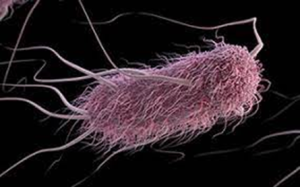Please click the frequently asked questions below for further information and IPC precautions required:
-
What is E.coli 0157?
Escherichia coli O157, also known as Shigatoxigenic Escherichia coli (STEC, previously known as verotoxigenic or VTEC), is a serogroup of the family of bacteria Escherichia coli. STEC infection is a relatively rare cause of gastrointestinal illness.
E. coli O157 is found in the gut and faeces of many animals, particularly cattle.

-
Why is this information important?
If NIAS staff are aware that the patient has a suspected or confirmed case this should be communicated to the Control Room (Emergency or Non-emergency as appropriate) and the staff in the receiving unit when transferring the patient to ensure effective patient care and management.
-
How is it spread?
People can become infected by:
- Eating contaminated food
- Contact with infected animals either directly or through inadvertent contact with animal faeces (e.g. at farms, petting farms and campsites);
- Contact with other people who have the illness (i.e. through inadequate hand hygiene after using the toilet and/or before food handling);
- Drinking water from inadequately treated water supplies;
- Swimming or playing in contaminated water such as ponds or streams.
-
What are the symptoms of Ecoli 0157?
The symptoms may vary for each person, but often include:
- Severe stomach cramps
- Diarrhoea (often bloody)
- Vomiting
- Some people may have a fever
Some people may develop two serious conditions known as haemolytic uraemic syndrome (HUS) and thrombotic thrombocytopaenic purpura (TTP) that affect the blood, kidneys and in severe cases the central nervous system.
-
IPC Precautions
- Contact precautions should be used
- Hand Hygiene should be completed as per the 5 moments in line with usual practice with Soap and Water
- Eye protection should be risk assessed and worn if any risk of splashes.
- Gloves and Aprons should be worn.
- The patient should be transported via ambulance with no other patients present.
- Laundry should be treated as contaminated, placed into an alginate bag and placed into a red laundry bag.
-
What cleaning is required?
All equipment and the ambulance should have an in-between patient clean paying particular attention to touch points.
-
Do staff need any prophylaxis or follow up?
If staff have been exposed to a confirmed or suspected case of Ecoli 0157 they should remain vigilant for any symptoms but there is no active follow up required.
If staff become symptomatic they should remain off work until 48 hours asymptomatic (72 hours if food handling).




